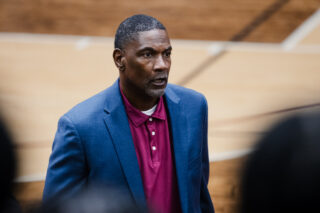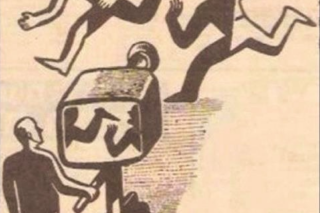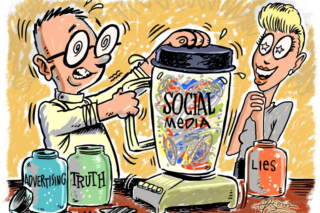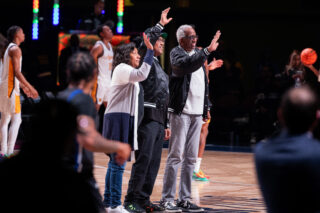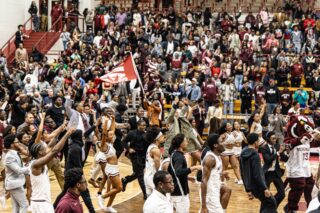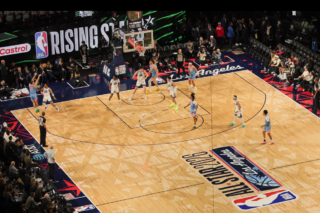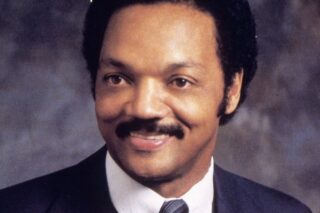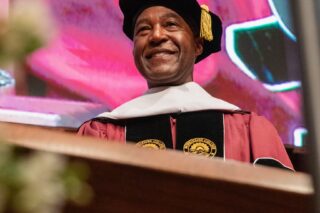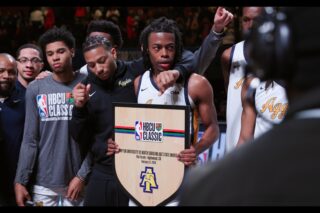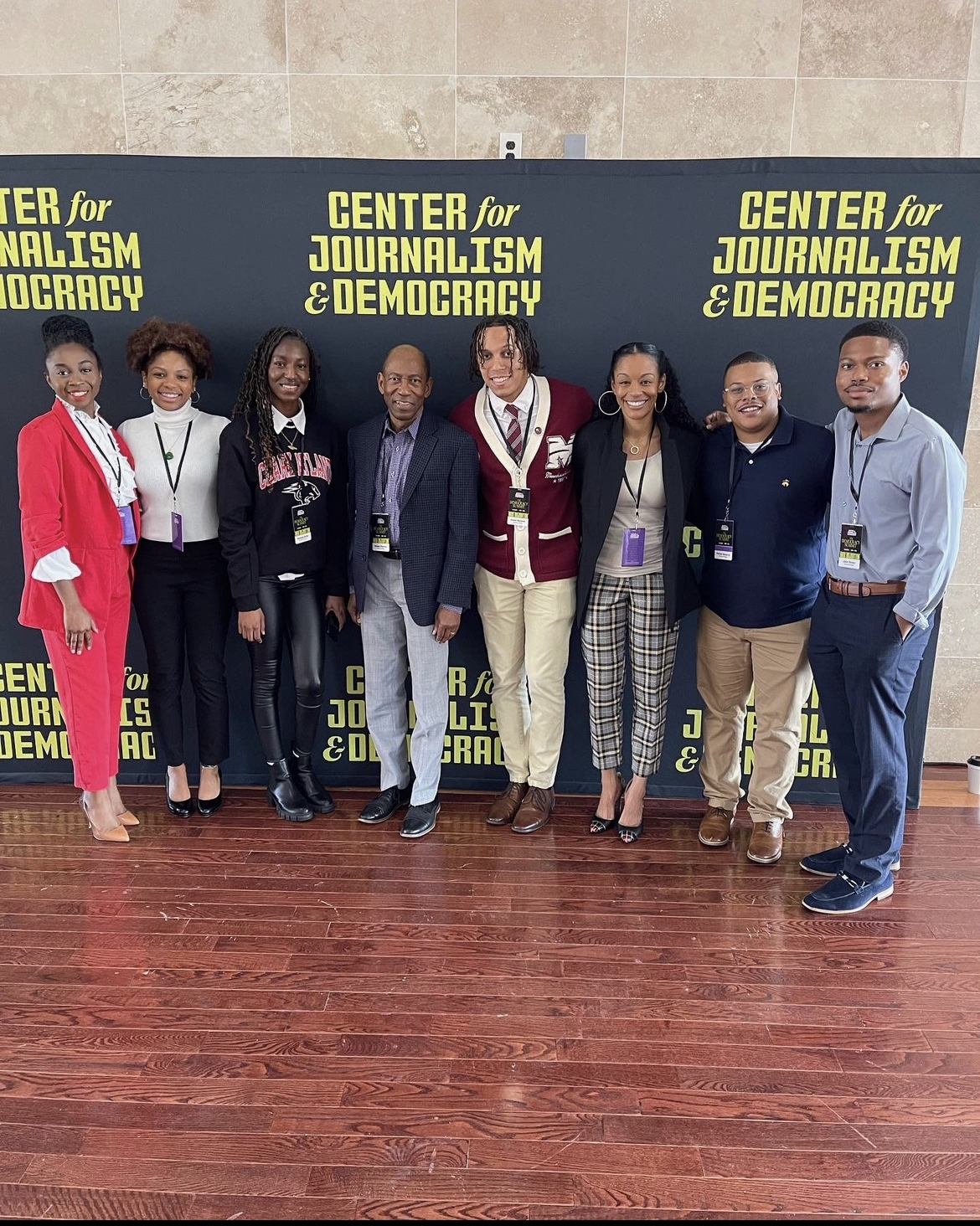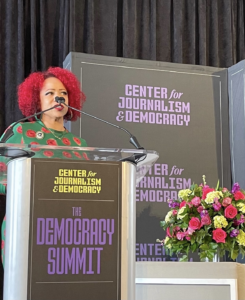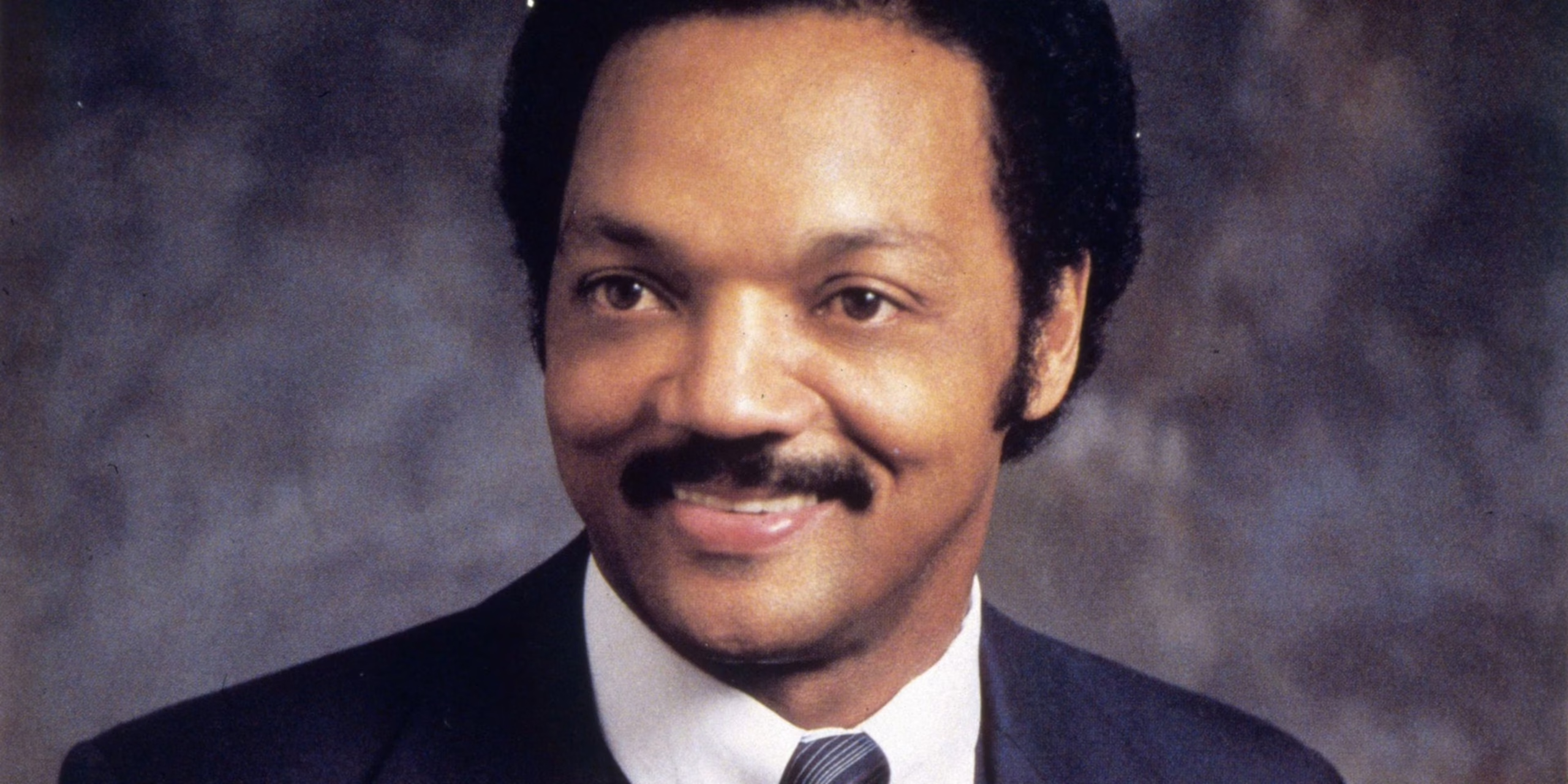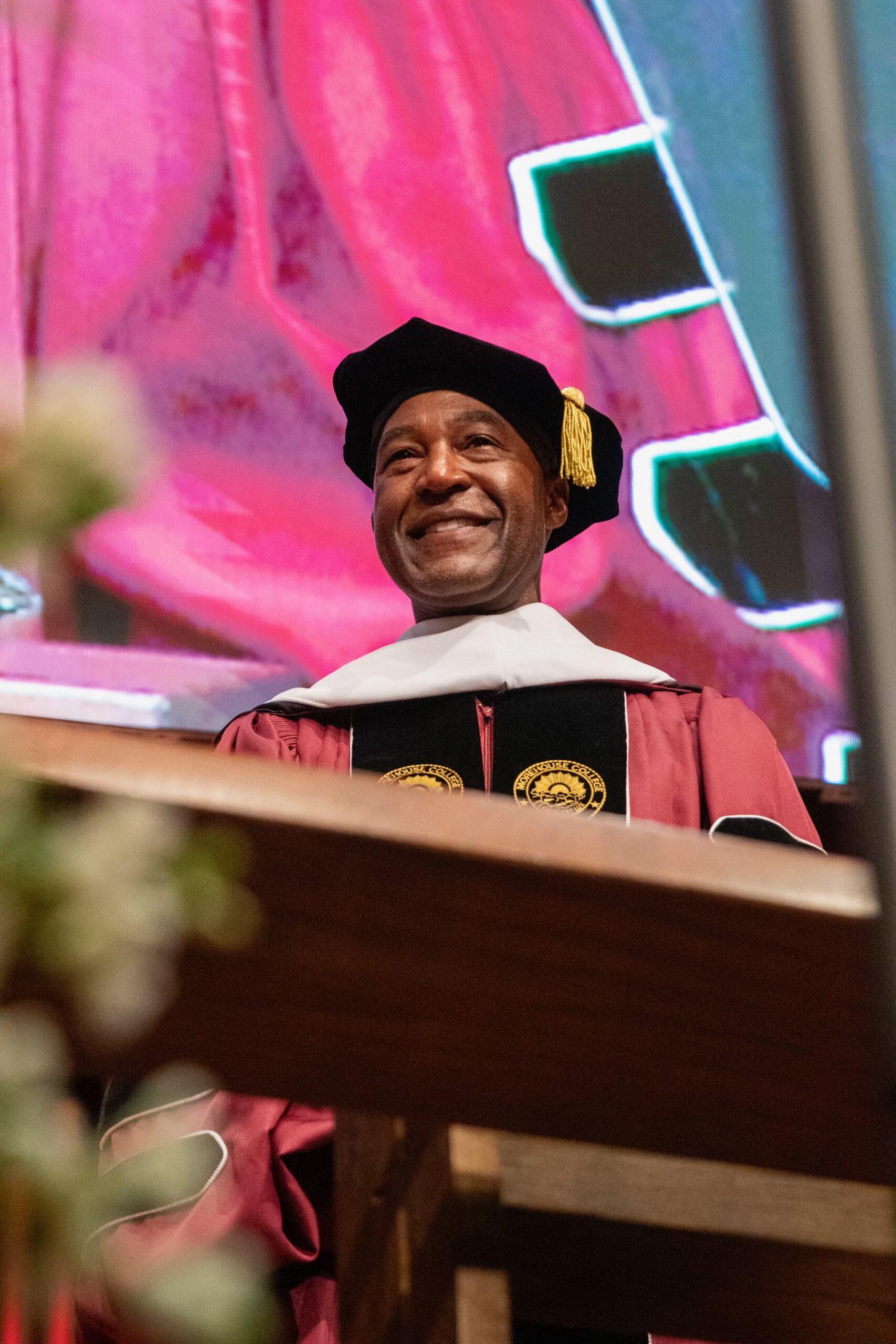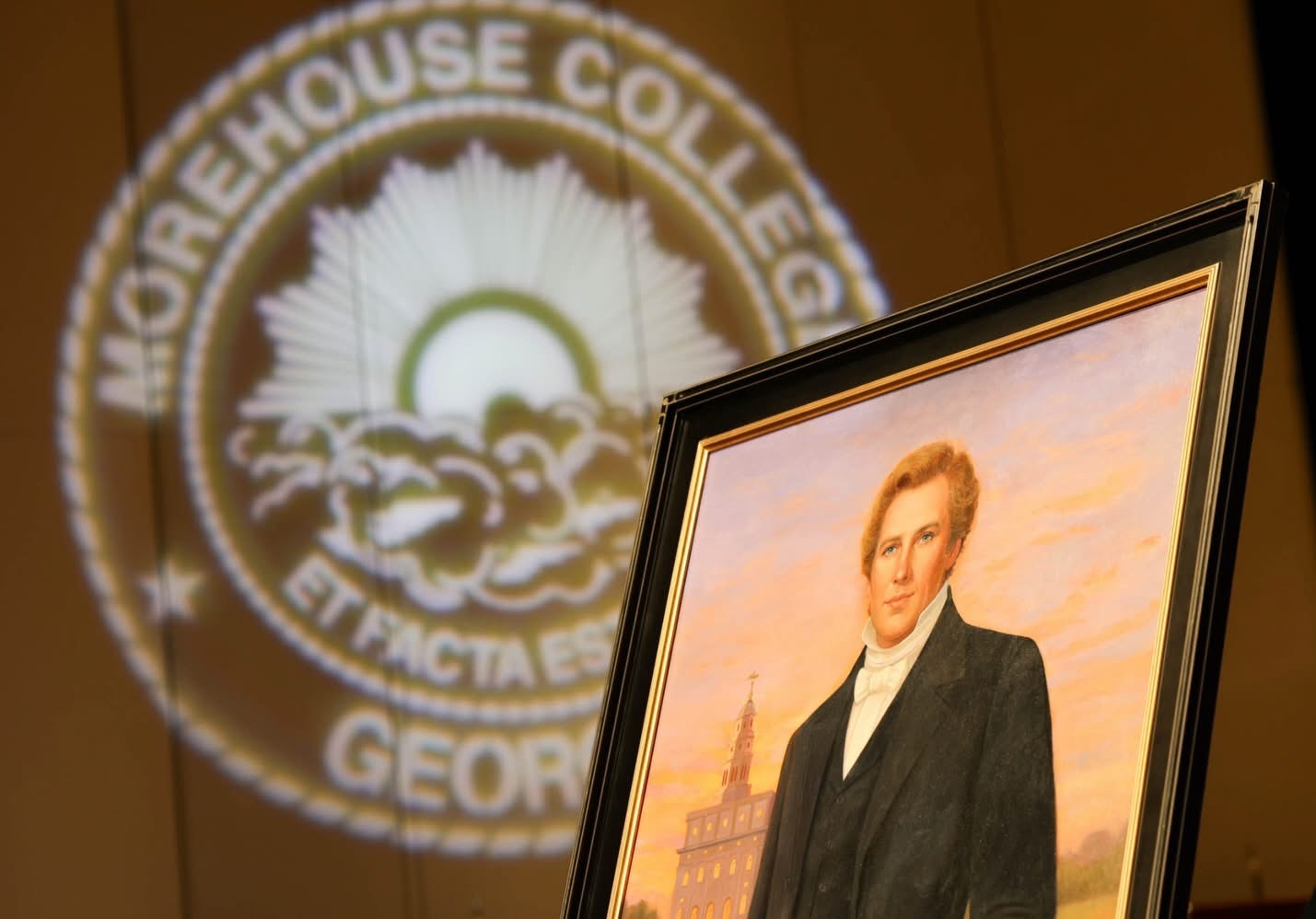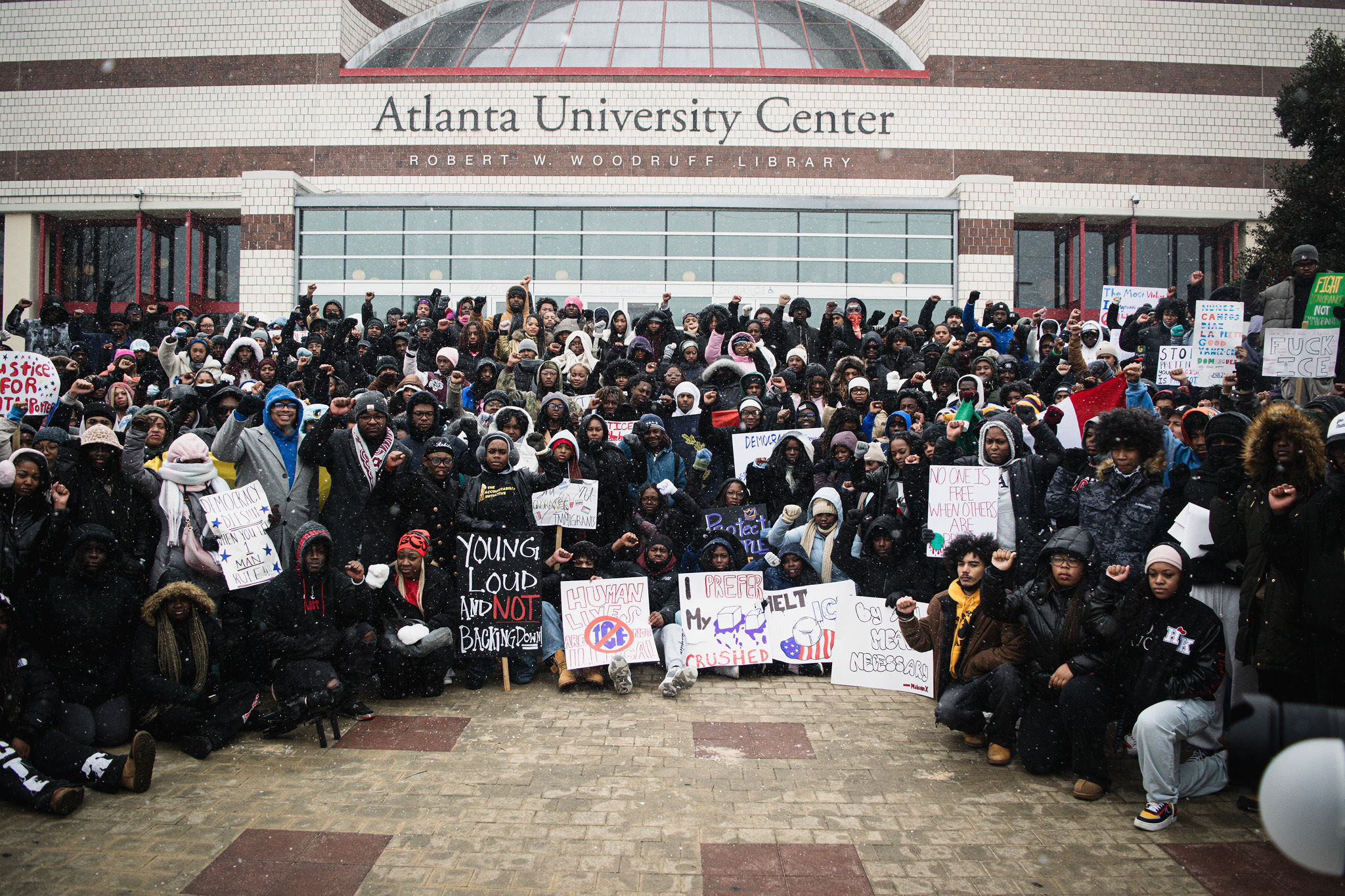AUC representatives at The Democracy Summit: Julaiza Alvarez (Clark Atlanta), Maleika Stewart (Spelman), Shannay Porter (Clark), Morehouse’s Professor Ron Thomas, Auzzy Byrdsell, Professor Nicole Carr, Ronnie Simon ’22, Jalen Brown./Photo by Unknown.
By Auzzy Byrdsell, Contributing Writer
Black reporters who self-identify as pro-democracy journalists are so important in American society, yet they are so scarce. On Nov. 15, Atlanta University Center journalism students gained resources to help solve this predicament.
At Howard University, Pulitzer Prize winner Nikole Hannah-Jones officially founded and launched The Center for Journalism and Democracy by hosting seven panel discussions and presentations committed to increasing historically informed pro-democracy journalism. Hence, the event was named The Democracy Summit.
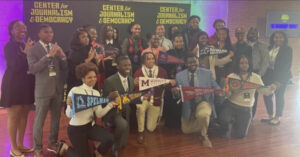
Students from nine HBCUs proudly display their school pennants. /Photo by Nicole Carr
HBCU journalism students and faculty will be trained and supported by provided courses, financial support, and other assets at news organizations that utilize investigative reporting in service of justice and equality.
Nikole Hannah-Jones. /Photo by Nicole Carr
The Center provided travel and lodging in Washington, DC, for a plethora of HBCU students and faculty who attended the summit. Representatives of the AUC, North Carolina A&T, Florida A&M, Texas Southern, North Carolina Central, Savannah State and Morgan State were all present. Several credible news outlets and Black-owned publications were invited as well.
Hannah-Jones is a critically acclaimed, award-winning investigative reporter who has covered civil rights and racial injustice for the New York Times. She has won a Peabody Award for exceptional storytelling that reflects social issues and emerging voices of our day, two George Polk Awards for exceptional longform investigative or enterprise journalism, and is a three-time National Magazine Awards winner.
In her opening remarks she expressed how much America needs the voices of pro-democracy journalists and the Black press. She also thanked several foundations (Ford, Knight, MacArthur and Open Society) that have provided abundant financial support to the Center.
“We can show what HBCU students are capable of when we don’t have to do more with less,” Hannah-Jones said.
These partnerships and resources are a step forward in the evening of the playing field of American coverage of injustice in the nation.
The Democracy Summit consisted of five panels regarding different issues about American democracy and the role of journalists in a time where democracy and equality are still under attack. The summit also included remarks from well-known author Ta-Nehisi Coates and President Barack Obama.
The panels featured a variety of international reporters, political scientists and professors. The audience discussed and asked questions about how much our democracy is broken and what more the Black press can do to combat its destruction.
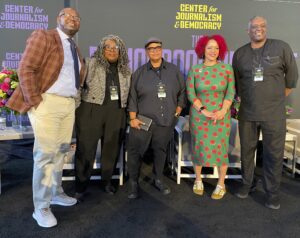
Summit host Nikole Hannah-Jones (second from right) joins Foundational Cracks panelists Professors Jason Johnson (Morgan State), Anthea Butler (U. Pennsylvania), Keeanga-Yamahtta Taylor (Northwestern) and Greg Carr (Howard)./Photo by Ron Thomas
The most intriguing panel of the day was titled Foundational Cracks, a discussion about if America has ever had a true democracy. Panelists discussed how the nation was founded on white male supremacy, racism and the suppression of truth in the media.
That discussion was led by Anthea Butler, Greg Carr and Keenga-Yamahtta Taylor, three professors who specialize in African American and American social studies. Their rapport with the audience led to great perspectives and conversations.
Carr stood out with his humor and clear passion for the discussion.
“The Black press is not for America but for humanity,” he said. He expressed his thoughts on the purpose of the Black press and its duty to humanity. He also spoke to how America’s nature has always been to suppress Black voices.
Many of the issues and topics that were discussed at these panels have impacts on how our nation is perceived internationally. So many foreign relationships have been severed and foreigners have lost respect for our country because of some of the choices our government and leaders have made over the years.
When I was given the chance to ask about our role as the Black press to help fix the way America is perceived, Butler was eager to give me some perspective.
“The question becomes how do we make alliances with Black press around the world that is fighting the same kinds of things we have here,” she said.
Butler talked about the shooting of nine Black church members during a white supremacist’s terrorist attack in Charleston, South Carolina. She revealed that the majority of the calls she received from reporters covering the attack were from the international press; in comparison, very few came from the American press.
“The international press is a little bit more hip to the racism in the American press,” Butler said.
It is intentional that the media in the United States is not as motivated to uncover white supremacy, racial injustice, and inequality across the nation. That is because our government has a structural foundation that has opened the window for these inequities to exist.
However, we are not the only country fighting this in our media. This is why we must connect with media across the entire Black diaspora and use each other as resources to reveal global truth.
The Center for Journalism and Democracy will try to make these networks possible with the resources and connections our students and professional journalists are being offered. When given adequate platforms and opportunities to tell our stories, we have an obligation to report with integrity for the advancement of humanity.
“We can make something out of something,” Hannah-Jones said.
To learn more about The Center for Journalism and Democracy and what will be offered to HBCU students and professional Black journalists, click here.

